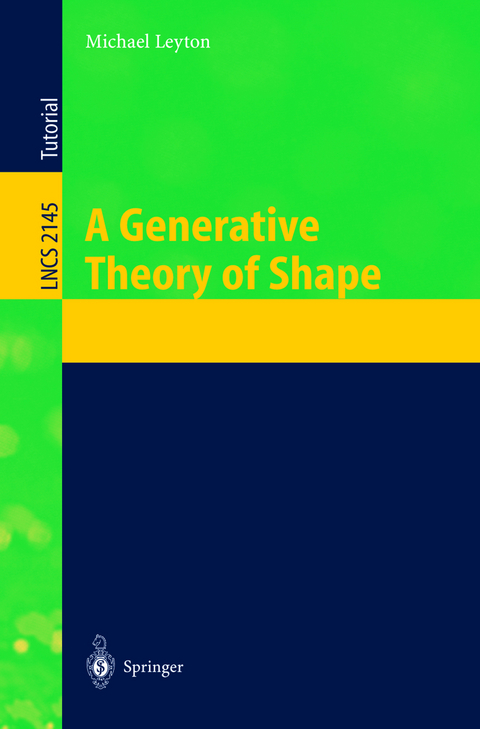
A Generative Theory of Shape
Springer Berlin (Verlag)
9783540427179 (ISBN)
Professor Michael Leytonlehrt an der Fakultät des Center for Discrete Mathematics and Theoretical Computer Science an der Universität Rutgers. Er ist Vorsitzender der International Society for Mathematical and Computational Aesthetics und lebt in Manhattan.
Transfer.- Recoverability.- Mathematical Theory of Transfer, I.- Mathematical Theory of Transfer, II.- Theory of Grouping.- Robot Manipulators.- Algebraic Theory of Inheritance.- Reference Frames.- Relative Motion.- Surface Primitives.- Unfolding Groups, I.- Unfolding Groups, II.- Unfolding Groups, III.- Mechanical Design and Manufacturing.- A Mathematical Theory of Architecture.- Solid Structure.- Wreath Formulation of Splines.- Wreath Formulation of Sweep Representations.- Process Grammar.- Conservation Laws of Physics.- Music.- Against the Erlanger Program.
| Erscheint lt. Verlag | 26.10.2001 |
|---|---|
| Reihe/Serie | Lecture Notes in Computer Science |
| Zusatzinfo | XV, 549 p. |
| Verlagsort | Berlin |
| Sprache | englisch |
| Maße | 155 x 233 mm |
| Gewicht | 822 g |
| Themenwelt | Informatik ► Grafik / Design ► Digitale Bildverarbeitung |
| Informatik ► Theorie / Studium ► Künstliche Intelligenz / Robotik | |
| Schlagworte | Bildverarbeitung • Complexity • Complex Shape • Computergrafik • computer vision • Editing • Erlanger Program • Geometric Invariants • Geometric Objects • Geometric Shape • Geometric Structure • Geometrie • group theory • Hardcover, Softcover / Informatik, EDV/Informatik • HC/Informatik, EDV/Informatik • Kinematics • Machine vision • robot • Robotics • Robot Navigation • Shape generation • Shape Theory • visual perception • Wreath Products |
| ISBN-13 | 9783540427179 / 9783540427179 |
| Zustand | Neuware |
| Informationen gemäß Produktsicherheitsverordnung (GPSR) | |
| Haben Sie eine Frage zum Produkt? |
aus dem Bereich


